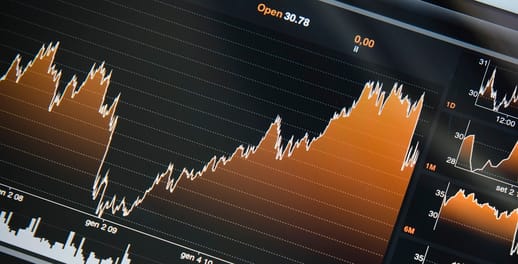Receive Focus insights straight to your inbox
The last two-week break between Weekly Digests over Easter was a period in which very little happened. The latest fortnight has seen rather more market activity, mostly of the less welcome negative variety. And, not for the first time, Donald Trump was the catalyst. The long-held consensus amongst investors has been that the US and China will eventually hammer out a trade deal, mainly on the basis that neither country would find an escalating trade war politically acceptable at home.
The long-held consensus amongst investors has been that the US and China will eventually hammer out a trade deal
Donald Trump’s eye is on the 2020 elections, and economic and/or stock market downturns tend not to help incumbents to be re-elected; in China, there is an understanding that the Communist Party can remain in power unchallenged as long as the country’s prosperity continues to rise. Thus a bit of “strongman” posturing, not unlike the weigh-in before a boxing match, is all part of the theatre. The difference is that Trump and Xi won’t actually step into the ring.
The problem is, of course, that if they do, the outlook for the global economy could deteriorate rapidly, especially given that Europe, itself massively dependent on external trade, would not provide any support. Thus it is not unnatural for investors to take some money off the table and buy some downside protection, just in case.
That is what happened last week following Trump’s tweet in which he threatened to raise tariffs on imports of certain goods from China, but some perspective is required to balance the more alarming headlines.
The MSCI All-Countries World Index is just 2.6% down from its most recent high (which was all of six trading days ago).
There is possibly a slightly more worrisome message from the bond markets, with the US 10-Year Treasury yield falling from 2.6% to 2.42% in the past three weeks, and German Bund yields back in negative territory, but these as much reflect secular structural issues such as central bank policy and the lack of inflation as much as any immediate threat to growth.
The problem with all of these politically-inspired concerns is that the outcomes tend to be binary – they either happen or they don’t - thus it is hard for investors to take a strong view.
As such we have maintained a neutral risk position since the end of last year.
A key consideration remains the risk of an outright US recession developing. Back in December the market was pricing in a very high probability of such an outcome. At the time we thought that was too pessimistic, and so we judged that markets offered some value and the possibility of a decent rally. We haven’t been offered the same terms again yet.
The other big difference now is that the world’s central banks are firmly back “on message”, having backed away from any plans to tighten policy and essentially guaranteed not to do anything until there are more concrete signs of stronger growth. Interestingly, the attitude towards inflation is also evolving, with several members of the US Federal Reserve hinting that inflation might be allowed to “run hot” for a while to make up for previous shortfalls against the targeted 2% level. We have to acknowledge the fact that not even the people who populate the central banks really know exactly how to proceed at this stage.
Nominal interest rates have never been so low, even during world wars; global debt has never been so high, even during world wars.
It might seem harsh to suggest that they are making it up as they are going along, but we have never been here before. Nominal interest rates have never been so low, even during world wars; global debt has never been so high, even during world wars.
So where does Luis Suarez fit in to the narrative? During the first half of Liverpool’s Champions League semi-final second leg against Barcelona, Suarez inflicted a typically sneaky blow on Liverpool’s left back Andrew Robertson by kicking him when he ran past, trying to make it look as though it was part of his normal running action.
Robertson had to be substituted, and was replaced by Georginio Wijnaldum, who went on to score two goals. Not only that, but the reshuffle meant that James Milner shifted from midfield to left back, and, with the best will in the world, I’m not sure he would have been capable of scoring either of Wijnaldum’s goals. And so Suarez’s attempt to gain an advantage by unfair means ended up coming back to bite him (that’s a double irony given the Uruguayan’s propensity to sink his gnashers into opponents!).
Donald Trump is king of the sneaky blow. Will this attempt to gain the upper hand over China come back to haunt him? I had a very interesting conversation with the Chief Investment Officer of a Chinese investment fund last week. His opinion was that Trump has only motivated China to be more successful.
More specifically, the attack on China’s exports is forcing China to accelerate a shift towards more sustainable, and ultimately more productive and profitable domestic consumption and investment in value-added industries. I admit that the CIO might be talking his own book, but it’s an intriguing thought.
One caveat in all of this is that Trump is “predictably unpredictable”. This latest twist in the trade talks was quite unexpected because everything appeared to be on track for a deal. Furthermore, one wonders about Trump’s economic literacy. He has said more than once that he believes that the US is reaping billions of dollars from the tariffs that Chinese goods are subject to.
The truth is that the only people who are paying the tariffs are American consumers, and there is no evidence that Chinese companies are reducing their export prices to offset the tariffs. Meanwhile America’s farmers are drowning in soya beans which China is no longer buying, with the price dropping below the estimated cost of production. It’s almost impossible to guess what his next move might be.
About the author

John Wyn-Evans
Investment strategist
John is Head of Investment Strategy for Investec Wealth & Investment UK, is a member of the Global Investment Strategy Group, and is Chair of the Investec & Investment UK Asset Allocation Committee. John graduated from Exeter University in Modern Languages in 1984. He spent 27 years as an institutional stockbroker with Merrill Lynch and Lehman Brothers, before moving to investment management in 2011 and joining Investec in 2013. John is an Everton FC supporter.




